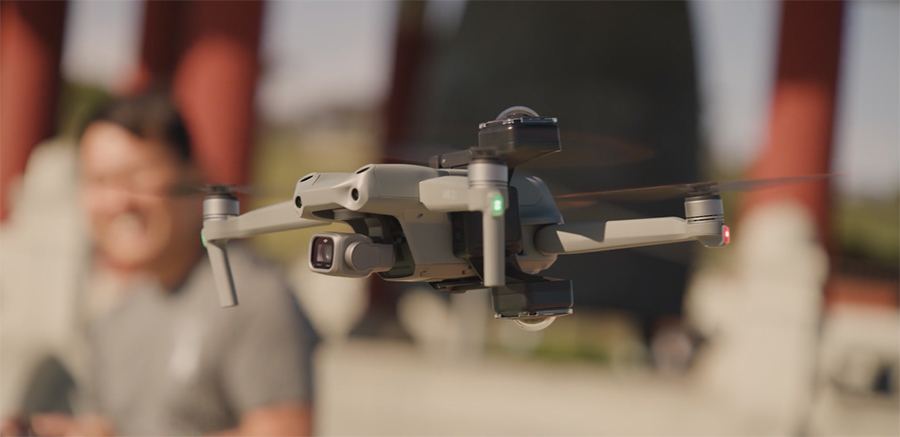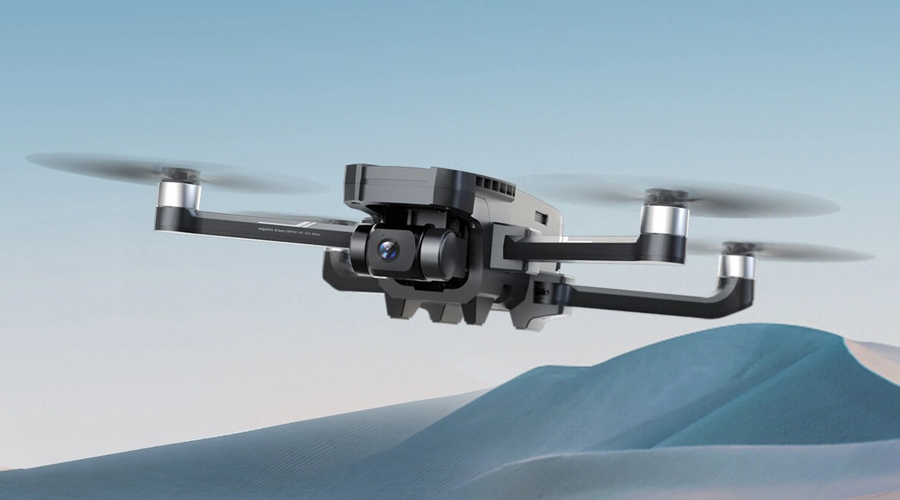-
Why is renewal of the Part 107 drone license necessary?
-
What are the requirements for renewal?
-
How do I sign up for the knowledge test?
-
What can I expect from the recurrent knowledge test?
-
What happens when I pass the recurrent knowledge test?
-
What happens if I fail to renew before the two-year period passes?
-
Final thoughts
One of the provisions of the Part 107 remote pilot certificate, which was made apparent back in 2016 when the Part 107 rules were first announced, was that it was valid only for a period of 24 months. Right before the two-year period since the Part 107 rules were put in place passed, the FAA released guidelines on how the drone license can be renewed.
What does it take to renew the drone license? Is the process any different from when your first applied for Part 107 certification? What happens if the two-year period passes, and you aren’t able to go through the renewal process?
Why is renewal of the Part 107 drone license necessary?
In the same way that Part 61 license holders need to go through a regular flight review for renewal of their licenses, Part 107 certified pilots are required to go through a process of knowledge validation. Why is this necessary in the first place?
Several flight organizations have already argued against the necessity of a repeat knowledge test for Part 107 license holders, citing that drones pose very little risk compared to manned aircraft operations. Some other groups have also appealed for a compromise – an extension of the validity period of the Part 107 license from two years to five years. However, the FAA has not budged on any of these requests so far, so it seems we’re stuck with compliance for the time being.
The FAA believes that periodic knowledge validation is necessary since drone pilots do not need to recall all the information found in the knowledge test on such a frequent basis. Because of the probability of erosion of the knowledge on the Part 107 rules and regulations and all other aviation-related information, the FAA has deemed the recurrent knowledge test a necessary measure to maintain the safety of the national airspace.
The FAA also believes that the two-year validity period is just the right length of time to conduct a revalidation of the drone pilot’s level of knowledge. This is far shorter than the validity of a driver’s license, but the FAA argues that drivers exercise the privileges afforded by their licenses on a much more frequent basis than drone pilots.
For instance, a commercial drone pilot may never have to fly outside of Class G airspace for the two years that their drone license was initially valid. By taking the recurrent knowledge test, the drone pilot is able to brush up on the rules that are relevant to other airspace classes.
The Part 107 rules, being relatively new, are still at a period where they can go through a lot of reviews and changes. The FAA believes that by requiring commercial drone pilots to renew their licenses every two years, they are given an avenue to communicate these changes to rules in a more all-encompassing manner.
What are the requirements for renewal?
The original Part 107 regulations state that “certificate holders must pass either a recurrent online training course or recurrent knowledge test every two years.” The language of this statement was a bit ambiguous, making it necessary for the FAA to release the revised Part 107 Airman Certification Standards (ACS) in May 2018.
The ACS clearly outlines the procedure that drone pilots need to take to renew their drone licenses: sign up for the recurrent knowledge test, pay a testing fee, take the test, and get 70% of the questions correct to pass it.
How do I sign up for the knowledge test?
Signing up the recurrent knowledge test can be done the same way that you signed up for the knowledge test to get your certification. The recurrent knowledge test is also being administered by Computer Assisted Training Systems, Inc (CATS), so simply head on over to their website and look for the testing center that works best for you. With more than 700 FAA-authorized testing centers in the country, you’re bound to find one that’s just a few minutes of drive away.
You will need to pay another $160 testing fee to take the recurrent knowledge test.
What can I expect from the recurrent knowledge test?
Thankfully, you should have an easier time passing the recurrent knowledge test compared to the original test for certification. Not only is the recurrent knowledge test shorter (40 items versus the 60 items of the first test), but it also has a smaller scope of topics. Again, the items are multiple-choice and have been randomly pulled from a much larger pool of questions.
You will need to answer at least 70% of the questions correctly, or at least 28 out of the 40 questions, to pass the recurrent knowledge test. Since the recurrent knowledge test is shorter, you will only be given 90 minutes to complete it (instead of the 120 of the original test).
How do the topics of the recurrent knowledge test compare to the original test? Here’s a quick table to show you:
| Topic | Recurrent Knowledge Test | Initial Knowledge Test |
| Operations | 20 to 30% | 35 to 45% |
| Regulations | 30 to 40% | 15 to 25% |
| Airspace and Requirements | 30 to 40% | 15 to 25% |
| Weather | None | 11 to 16% |
| Loading and Performance | None | 7 to 11% |
As you can see, there are two major subjects that you won’t need to read up on for the recurrent knowledge test: Weather, and Loading and Performance. This should already save you a few hours of study that you can dedicate instead to the more critical subjects.
Preparing for the recurrent test should be old territory for you. If you’ve signed up for a paid training course that offers lifetime access (like PilotInstitute’s Part 107 course), then you’re in luck because you can simply review the same materials you used to earn your certification. If that’s not the case, then it’s perfectly fine – you’ve been here before, and you probably know where to find excellent free resources.
According to the people who have already taken and passed their recurrent knowledge tests, a lot of questions focus on three specific subjects:
- Operational rules – This pertains to Part 107 flight rules and restrictions, i.e. when and where you are not allowed to fly, and the environmental conditions that you need to consider. We also recommend reading up on the FAA’s documentation requirements if you get into a drone-related accident.
- Reading aeronautical charts – Interpreting aeronautical charts constituted a bulk of the initial knowledge test, so we’re not surprised to see it make a comeback here. You’ll need to review how to identify different airspace classes based on their chart symbols, how to read map legends, and the basics of locating map features according to their coordinates.
- Airspace classes – Related to both items 1 and 2, you’ll need to refamiliarize yourself with the flight rules associated with each of the different airspace classes, such as where you need to secure LAANC authorization prior to flying.
Those who have taken the recurrent knowledge test say that most of the questions seem very familiar and look just like the ones they encountered in the initial knowledge test. To put it simply, the recurrent knowledge test is pretty easy. Just do your homework, be in good physical and mental condition when you take the test, and you should not have any problems.
What happens when I pass the recurrent knowledge test?
When you receive your successful test report, all you need to do is to keep a copy of the results with you whenever you fly your drone commercially. This will serve as proof that you have passed the test because no new drone license will be issued. This is kind of a strange arrangement, but perhaps we’ll see improvements once the requirement for the FAA Tracking Number (FTN) goes in place by January 13, 2020.
What happens if I fail to renew before the two-year period passes?
Here’s the peculiar thing about your Part 107 remote pilot certificate: it technically doesn’t expire. What expires after two years are the privileges granted on you that you earned when you passed the initial knowledge test. This means that, although your drone license is still valid, you may not exercise any of its privileges once the two-year period has passed. Your drone will effectively be grounded if you fail to renew your license – unless you fly it exclusively for leisure.
The FAA recommends that you take the recurrent knowledge test before the two-year period has passed so that you don’t run the risk of flying your drone commercially outside of legal boundaries. However, there is also no consequence if you let the two-year period pass, aside from not being able to fly your drone commercially. You should still be able to take the recurrent knowledge test as you please. You will NOT be expected to take the initial knowledge test as if you were a new applicant. There is also no penalty or fine to be paid if you take the recurrent knowledge test after the two-year period had expired.
Final thoughts
The requirement to renew your Part 107 remote pilot certificate is something that the FAA has remained adamant about, and we don’t foresee them changing their minds anytime in the near future. The good thing is that it’s pretty easy – you simply need to pass a condensed and simplified version of the knowledge test you took to earn your certification. It is, however, quite inconvenient having to pay the testing fee anew and making the drive to the testing center again – that much we’ll say.
The value of taking a recurrent knowledge test has become highlighted by a flurry of changes made to the Part 107 rules in the last several months. From changing the requirement on how to mark our drones with serial numbers, the about-to-be-implemented FAA Tracking Number, and the looming Remote ID system, the drone industry is evolving at a more rapid pace than ever.
Contents



